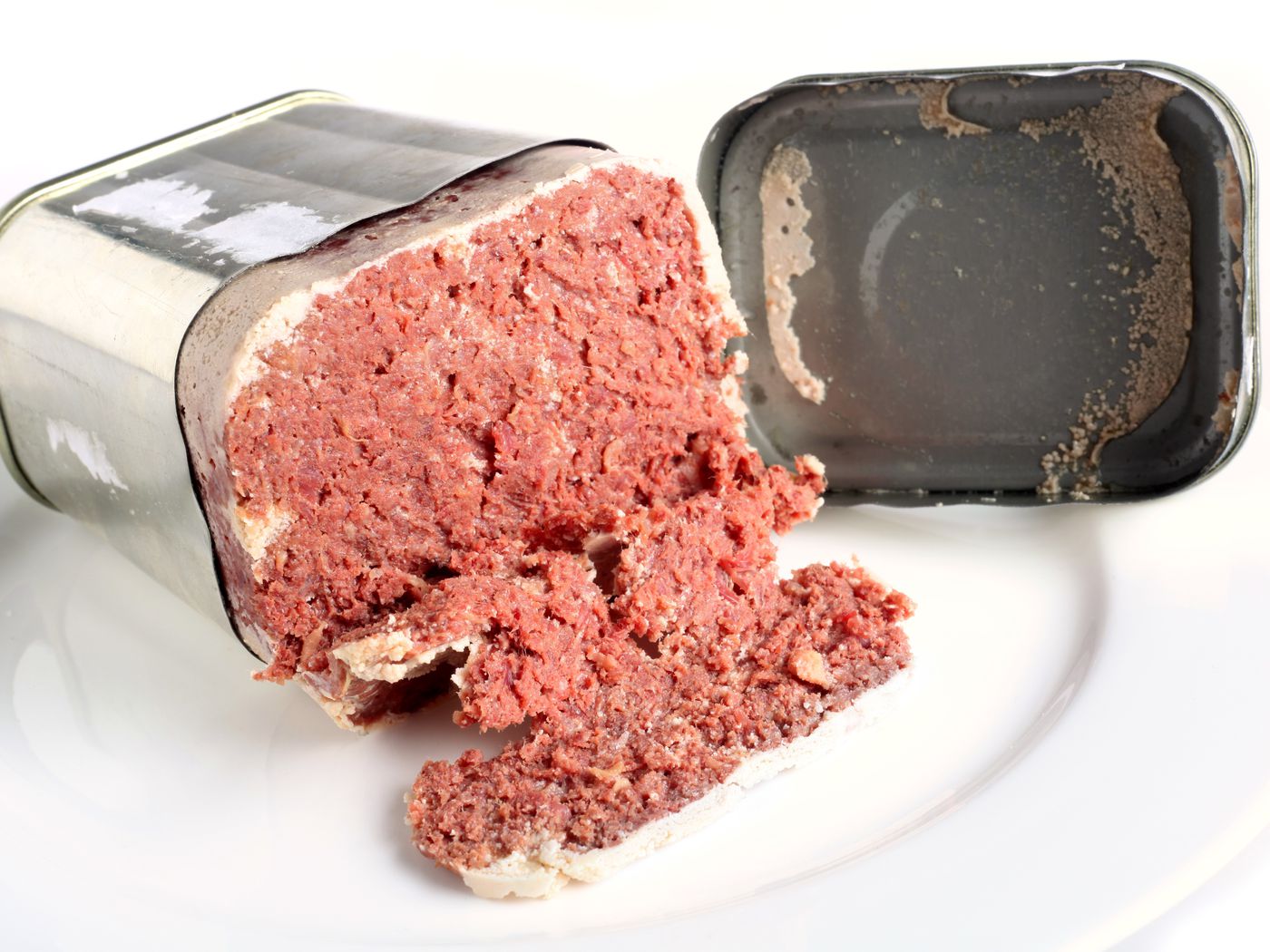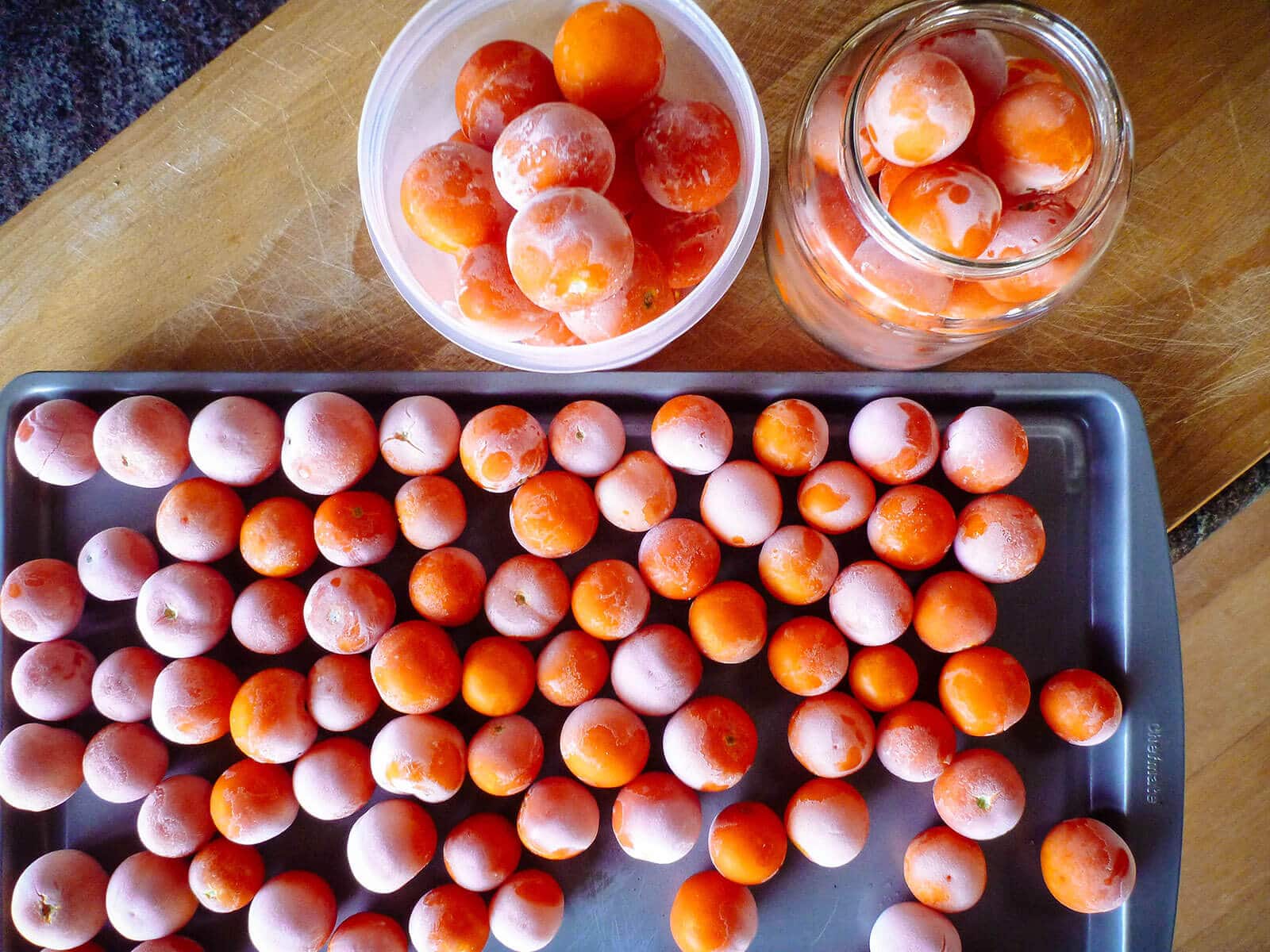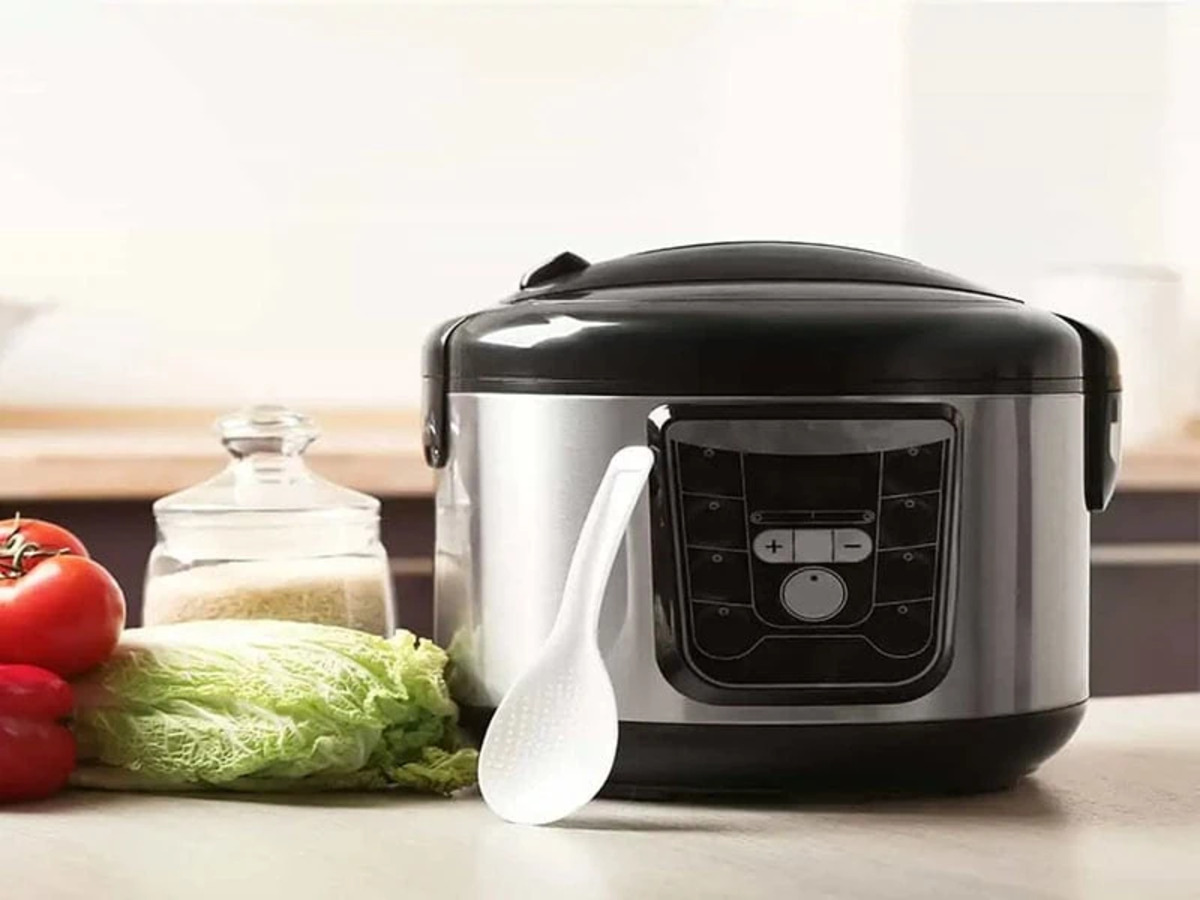Home>Articles>How Long Can You Keep Blueberries In The Freezer


Articles
How Long Can You Keep Blueberries In The Freezer
Modified: October 18, 2024
Discover how long you can store blueberries in the freezer with our informative articles. Extend their shelf life and enjoy their freshness whenever you want.
(Many of the links in this article redirect to a specific reviewed product. Your purchase of these products through affiliate links helps to generate commission for Storables.com, at no extra cost. Learn more)
Introduction
Welcome to the wonderful world of blueberries! These small, juicy berries are not only delicious, but they also offer a wide range of health benefits. Whether you have just picked a fresh batch or bought them in bulk, you may be wondering how to make them last longer. Freezing blueberries is a simple and effective way to preserve their freshness and flavor for an extended period of time.
In this article, we will explore the best practices for storing blueberries in the freezer, as well as how long they can be kept in this icy haven. We will also discuss the signs of spoiled frozen blueberries and share some tips on using them in various recipes. So, let’s dive in and discover the secrets to making your blueberries last!
Key Takeaways:
- Freeze blueberries for up to 12 months, but aim to use within 3-6 months for best flavor and texture. Proper packaging and storage are key to preserving their quality.
- Frozen blueberries are versatile for baking, smoothies, breakfast dishes, drinks, and snacks. Thaw them slowly for best results and enjoy their vibrant flavor year-round.
Read more: How Long Can You Keep Walnuts In The Freezer
Storing Blueberries in the Freezer
Properly storing blueberries in the freezer is crucial to maintain their taste, texture, and nutritional value. Here’s a step-by-step guide to help you freeze your blueberries like a pro:
- Wash the blueberries: Start by rinsing the blueberries thoroughly under cold water. This will remove any dirt, debris, or pesticide residue that may be present on the berries.
- Dry the blueberries: Gently pat the blueberries dry with a clean kitchen towel or paper towel. Ensuring that they are completely dry will prevent ice crystals from forming and protect their overall quality during freezing.
- Remove stems and leaves: If your blueberries have stems or leaves attached, remove them carefully. These parts can contribute to an unpleasant texture after freezing and thawing.
- Spread them out: Spread the blueberries in a single layer on a baking sheet lined with parchment paper. This will prevent the berries from sticking together, ensuring easier portioning later on.
- Pre-freeze the blueberries: Place the baking sheet with the spread-out blueberries in the freezer for about 2 to 4 hours, or until they are firm to the touch. This pre-freezing step will prevent clumping.
- Transfer to freezer bags or containers: Once the blueberries are pre-frozen, transfer them into freezer-safe bags or airtight containers. Make sure to label the bags or containers with the date of freezing for easy reference later on.
- Remove excess air: Squeeze out any excess air from the bags or containers before sealing them. This will help prevent freezer burn and maintain the quality of the blueberries for a longer period of time.
- Store in the freezer: Place the bags or containers of blueberries in the freezer, ensuring they are kept in a stable and upright position. Choose a spot where the temperature remains consistently cold.
By following these steps, you can keep your blueberries in the freezer while preserving their taste, texture, and nutritional value.
Proper Packaging for Blueberries
Choosing the right packaging for your frozen blueberries is crucial to maintain their quality and prevent freezer burn. Here are some packaging options to consider:
- Freezer bags: Freezer-safe plastic bags are a popular and convenient option for packaging blueberries. Look for bags specifically designed for freezer use, as they are thicker and more durable. Make sure to remove as much air as possible from the bags before sealing them to prevent freezer burn.
- Airtight containers: Alternatively, you can use airtight containers made of plastic or glass. Make sure the containers have a tight-fitting lid to keep out moisture and air. This will help maintain the quality of the blueberries and prevent any unwanted odors from seeping into the fruit.
- Ziplock bags: If you don’t have freezer bags on hand, you can use regular ziplock bags. However, double-bagging them is recommended to provide extra protection against freezer burn.
Regardless of the packaging option you choose, make sure to label it with the date of freezing. This will help you keep track of how long the blueberries have been in the freezer.
It is also important to portion your blueberries based on your needs. If you plan to use them in small quantities, it is advisable to freeze them in individual serving sizes. This way, you can easily thaw and use only what you need, without having to defrost the entire package.
Remember, the key to proper packaging is ensuring that the blueberries are well-sealed and protected from air and moisture. By taking these precautions, you can ensure that your frozen blueberries stay fresh for a longer period of time.
How Long Can Blueberries Be Kept in the Freezer?
Blueberries can be kept in the freezer for an extended period of time, allowing you to enjoy their deliciousness even when they’re out of season. However, it’s important to note that their quality and taste may gradually deteriorate over time. The length of time that blueberries can be kept in the freezer depends on various factors, including how they are stored and the quality of the berries prior to freezing.
On average, blueberries can be stored in the freezer for up to 12 months. When properly packaged and stored, the berries can maintain their flavor and nutritional value for this duration. However, it’s worth mentioning that the longer blueberries are kept in the freezer, the more likely they are to lose some of their crispness and flavor.
It’s important to note that freezer temperature and storage conditions play a significant role in maintaining the quality of frozen blueberries. Make sure your freezer is set to a temperature of 0°F (-18°C) or below. Additionally, keep the berries away from any strong-smelling foods to avoid cross-contamination of flavors.
For the best results, try to use the frozen blueberries within the first three to six months. While they may still be safe to consume after this period, the texture and flavor may not be as vibrant as when they were freshly frozen.
Remember to label your frozen blueberries with the date when you first stored them in the freezer. This will help you keep track of their freshness and determine when it’s time to use them.
If you find yourself with a surplus of blueberries that you won’t be able to use within the recommended timeframe, consider sharing them with friends, family, or neighbors. Sharing the abundance can bring joy to others and prevent any wastage.
Ultimately, the quality and taste of frozen blueberries will gradually decline over time, so it’s best to consume them within the recommended timeframe for the best eating experience.
Blueberries can be kept in the freezer for up to 6 months. To freeze them, spread them in a single layer on a baking sheet and then transfer them to a resealable plastic bag for long-term storage.
Signs of Spoiled Frozen Blueberries
While freezing is an effective method for preserving blueberries, it’s essential to recognize the signs of spoiled frozen blueberries. Here are some indicators that your frozen blueberries may have gone bad:
- Discoloration: Check the color of the frozen blueberries. If they have turned dark, brown, or have developed any unusual spots, it may be a sign of spoilage.
- Ice crystals: Examine the texture of the berries. If you notice large ice crystals or clumps forming, it could be an indication that the blueberries have thawed and refrozen multiple times, resulting in compromised texture and quality.
- Freezer burn: Look for any signs of freezer burn on the surface of the blueberries. Freezer burn occurs when the berries have been exposed to air, causing dehydration and affecting their taste and texture.
- Off odors: Give the frozen blueberries a sniff. If you detect any odd or unpleasant odors, it may indicate that the berries have absorbed unwanted flavors or have started to spoil.
- Mold: Inspect the blueberries for any signs of mold growth. If you notice fuzzy, green, or black patches on the berries, it’s a clear indication that they are no longer safe to consume.
If you come across any of these signs, it’s best to discard the frozen blueberries. Consuming spoiled blueberries can lead to gastrointestinal issues and is not worth the risk to your health.
To minimize the chances of your blueberries spoiling, it’s important to store them in proper packaging, ensure a consistent and low freezer temperature, and use them within the recommended time frame. This will help preserve their quality and taste for as long as possible.
Keep in mind that even if your frozen blueberries show no visible signs of spoilage, their overall quality and taste may still diminish over time. Therefore, it’s always good to use your best judgment when deciding whether to keep or discard frozen blueberries.
Read more: How Long Can You Keep Alcohol In The Freezer
Tips for Using Frozen Blueberries
Frozen blueberries are incredibly versatile and can be used in a variety of recipes. Here are some tips to help you make the most of your frozen blueberries:
- Thaw them properly: When you’re ready to use your frozen blueberries, it’s important to thaw them properly. The best way to do this is by transferring them to the refrigerator and allowing them to thaw overnight. This slow thawing process helps to preserve their texture and minimize moisture loss. Avoid thawing them at room temperature or using a microwave, as this can lead to a mushy consistency.
- Use them in baked goods: Frozen blueberries are excellent for baking. Whether it’s in muffins, pancakes, bread, or pies, the frozen berries can be added directly to the batter or dough. The frozen state helps them retain their shape and prevents them from bleeding into the batter.
- Make smoothies and sauces: Frozen blueberries are perfect for smoothies, as they provide a refreshing and fruity flavor. Simply blend them with your preferred liquid, such as milk or yogurt, along with other fruits for a delicious and nutritious treat. They can also be cooked down into a sauce to accompany pancakes, ice cream, or other desserts.
- Add to breakfast dishes: Sprinkle a handful of frozen blueberries over your morning bowl of oatmeal, cereal, or yogurt for a burst of flavor and added nutrients. You can also mix them into pancake or waffle batter for a delightful twist.
- Create refreshing drinks: Frozen blueberries can be used in beverages as well. Add them to iced tea, lemonade, or infused water for a fruity twist.
- Enjoy them as a frozen snack: Frozen blueberries can be enjoyed straight out of the freezer. They make a refreshing and healthy snack, especially during warm summer months. They can also be used as a topping for ice cream or frozen yogurt.
Remember, while frozen blueberries work well in a variety of recipes, they may release some extra liquid when thawed. Adjust the quantities or add a little extra thickening agent to compensate for this extra moisture.
With these tips, you can unleash the full potential of your frozen blueberries and enjoy their vibrant flavor and nutritional benefits throughout the year.
Conclusion
Freezing blueberries is a fantastic way to prolong their shelf life and ensure you have access to these delicious and nutritious berries all year round. By following proper storage methods and packaging techniques, you can maintain the quality, taste, and nutritional value of your frozen blueberries.
Remember to wash, dry, and remove any stems or leaves from the blueberries before freezing them. Spread them out in a single layer to pre-freeze, and then transfer them to freezer bags or airtight containers, removing as much air as possible to prevent freezer burn. Label the packaging with the date of freezing for easy reference.
Blueberries can be safely stored in the freezer for up to 12 months, but for the best flavor and texture, it’s recommended to use them within the first three to six months. Pay attention to signs of spoilage, such as discoloration, ice crystals, freezer burn, off odors, or mold, and discard any blueberries that show these signs.
When it comes to using frozen blueberries, the options are endless. From baking to smoothies, breakfast dishes to refreshing drinks, the versatility of these frozen berries allows you to incorporate them into a wide range of recipes for a burst of flavor and nutrition.
By understanding the proper techniques and following the tips provided in this article, you can make the most of your frozen blueberries and enjoy their delightful taste and health benefits throughout the year.
So go ahead, stock up on those blueberries, freeze them with care, and let their deliciousness brighten your meals and snacks whenever you desire!
Frequently Asked Questions about How Long Can You Keep Blueberries In The Freezer
Was this page helpful?
At Storables.com, we guarantee accurate and reliable information. Our content, validated by Expert Board Contributors, is crafted following stringent Editorial Policies. We're committed to providing you with well-researched, expert-backed insights for all your informational needs.















0 thoughts on “How Long Can You Keep Blueberries In The Freezer”